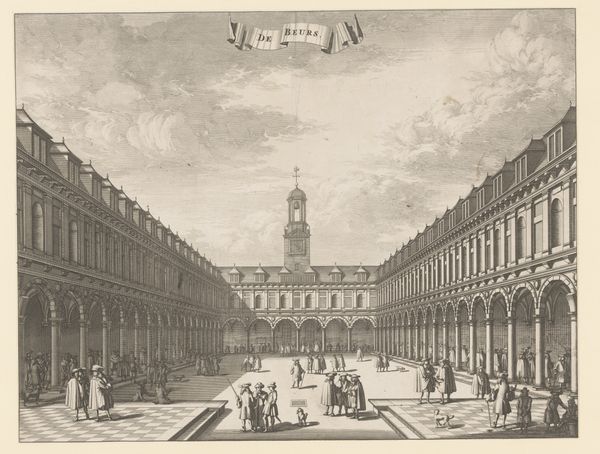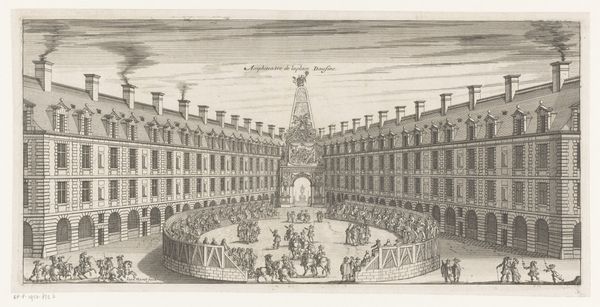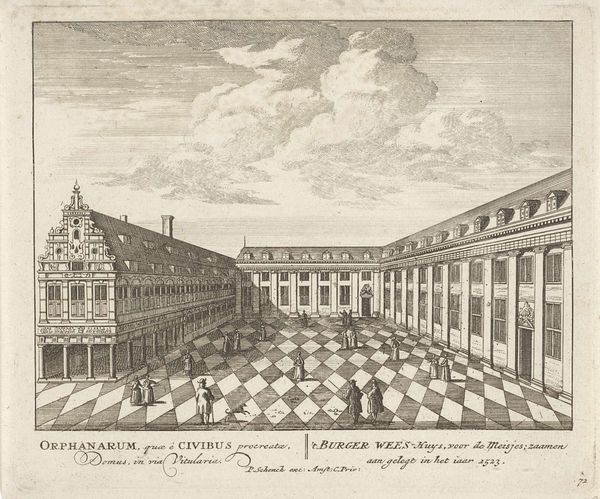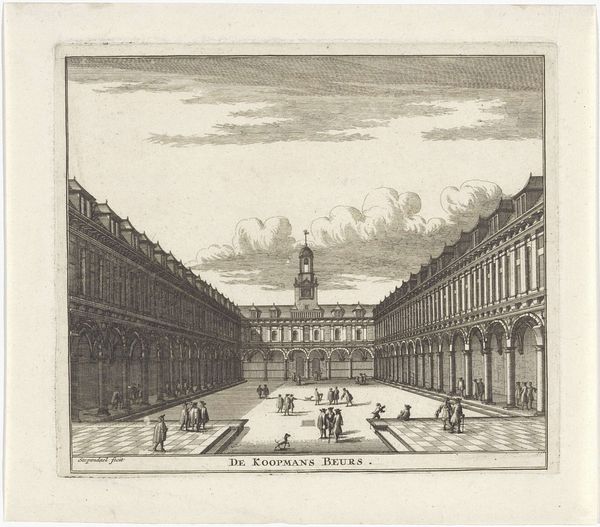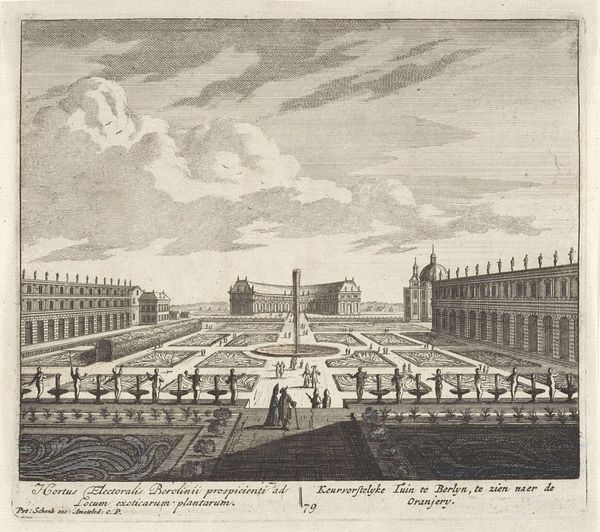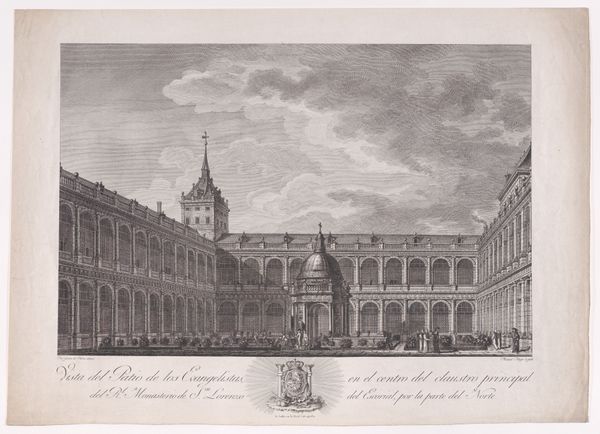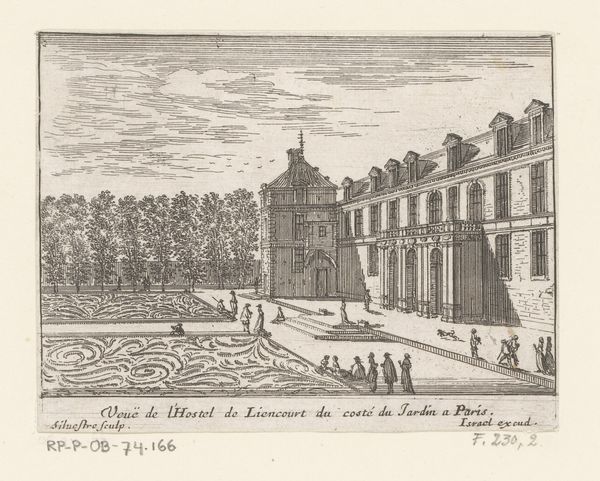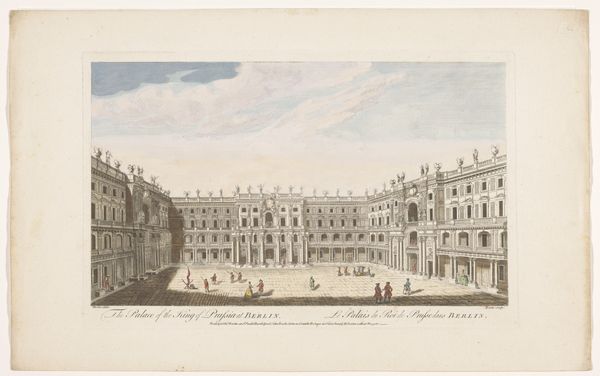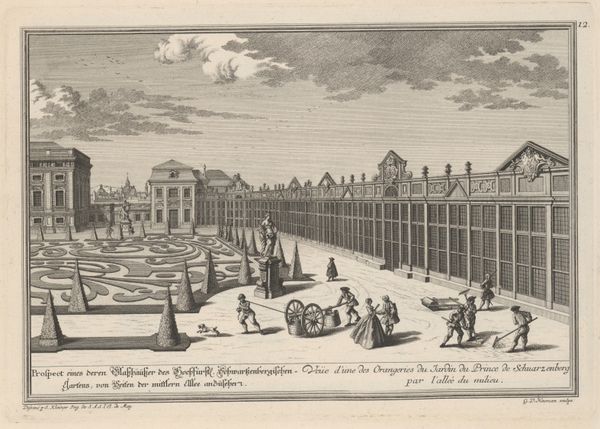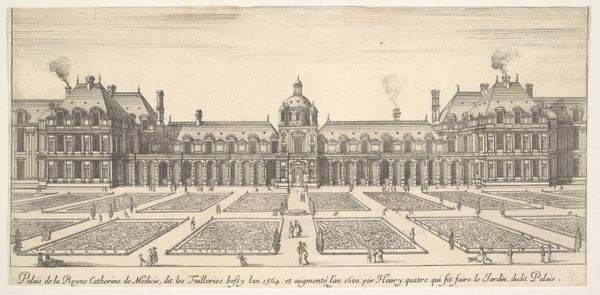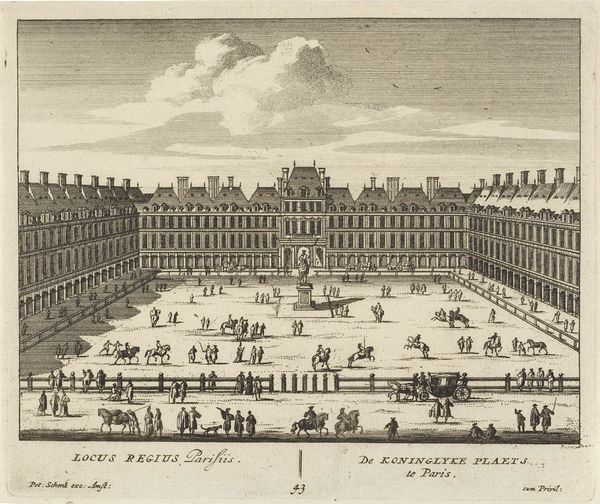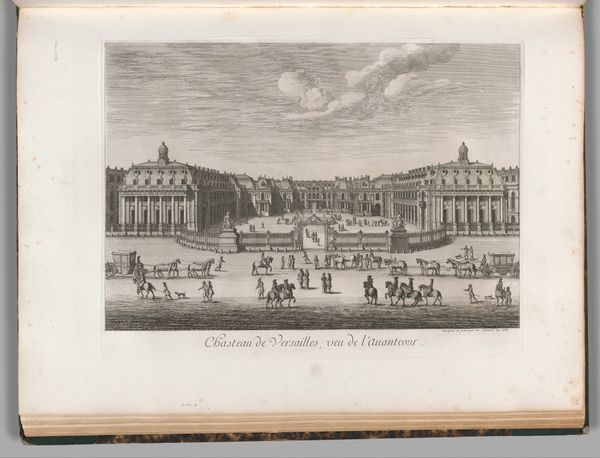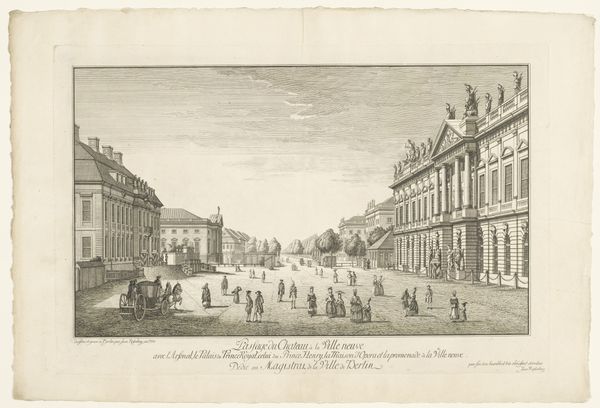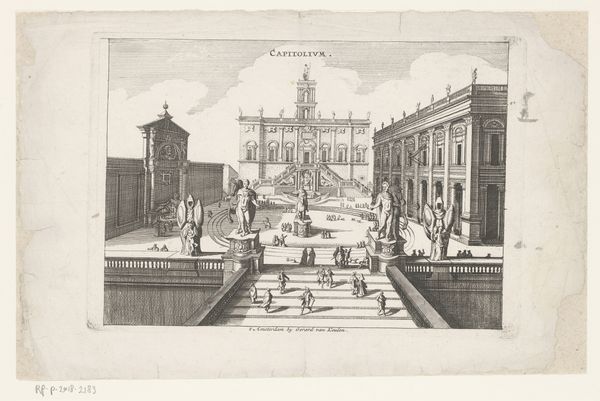
Gezicht op de binnenplaats van de Beurs van Hendrik de Keyser Possibly 1710 - 1766
0:00
0:00
anonymous
Rijksmuseum
print, engraving, architecture
#
aged paper
#
dutch-golden-age
# print
#
old engraving style
#
cityscape
#
engraving
#
architecture
Dimensions: height 162 mm, width 190 mm
Copyright: Rijks Museum: Open Domain
This print of the Amsterdam Stock Exchange was made by an anonymous artist in the Netherlands, likely in the late 17th century. Its formal qualities— the symmetrical composition, classical architecture and ordered space—speak to the rise of a mercantile class in the Dutch Golden Age. The image shows the courtyard of the Exchange, teeming with figures engaged in trade. It was built in 1608 to facilitate the rapidly expanding financial activities of the Dutch East India Company. Notice how the architecture serves as a backdrop for the performance of commerce. This institutional space facilitated social interactions and deals, but also served to legitimise the emergent capitalist economy. The Stock Exchange embodied the progressive values of the Dutch Republic, such as religious tolerance and free trade. By studying archival materials, historians can better understand the social and cultural impact of such institutions on 17th-century Dutch society. The print is not just a representation of a building but an insight into the values of a society.
Comments
No comments
Be the first to comment and join the conversation on the ultimate creative platform.
